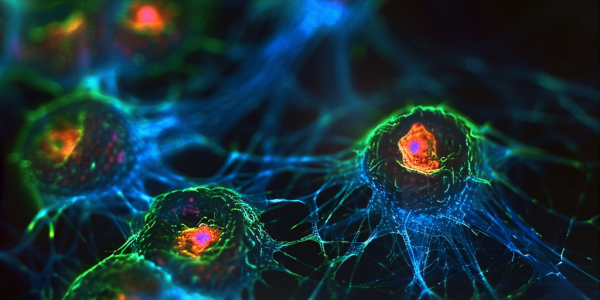Groundbreaking Cancer Treatment Discovery for Obese Patients
Trinity College scientists have made a groundbreaking discovery in cancer treatment by enhancing immunotherapy for obese patients with oesophageal cancer. The use of a molecule-blocking drug called E6130 shows promise in redirecting Natural Killer cells to the tumor site, potentially revolutionizing cancer treatment for obese individuals.
Groundbreaking Nano-Immunotherapy Developed for Lung Cancer Treatment
Researchers at Brigham and Women’s Hospital have developed a groundbreaking nano-immunotherapy for lung cancer that delivers anticancer drugs directly to cancer cells and boosts the immune system’s ability to combat the disease. This innovative approach targets multiple proteins on cancer cells, enhancing the immune response and minimizing side effects. Published in Science Advances, this new therapy offers hope for patients with non-small cell lung cancer who have not responded to traditional treatments.
Breakthrough in Cancer Research: Microbiome-Based Therapies Show Promise
A recent breakthrough in cancer research by a team from POSTECH and ImmunoBiome focuses on the use of a dietary-derived bacterial strain, IMB001, to enhance anti-tumor responses through ‘nutritional immunity’. The team’s study, published in Nature Immunology, reveals the potential of microbiome-based cancer therapies. Dr. Sin-Hyeog Im has developed a novel strategy for identifying beneficial bacteria suitable for cancer treatment, with plans to start a clinical trial in 2025. IMB001 has shown promising results in preclinical studies across various cancers, slowing down tumor progression and enhancing checkpoint inhibitor therapy efficacy.
Groundbreaking Cancer Research Discovery by Late UVA Scientist John Herr
Groundbreaking cancer research has emerged from the late University of Virginia School of Medicine scientist, John Herr, regarding the SAS1B protein found in cancer cells. Collaborating with Dr. Craig L. Slingluff Jr., Herr’s work holds the promise of innovative treatments for solid cancer tumors like breast cancer, lung cancer, and melanoma. Recent scientific publications highlight the significant impact of Herr’s investigations, pointing towards potential groundbreaking advancements in cancer therapy.
Breakthrough in Cancer Treatment Research Achieved with New Immune System Technology
Bar-Ilan University researchers have made a groundbreaking advancement in cancer treatment with new immune system technology, allowing for personalized treatments based on individual immune responses. By monitoring immune system changes around cancer cells, insights into patient reactions to immunotherapy are gained. This research, led by Dr. Shahar Alon, sheds light on the interaction between immune and cancer cells, offering valuable information for tailored treatment decisions and improving patient outcomes.
Researchers Make Strides in Understanding LAG-3 Protein
Researchers at Stanford University and New York University have made significant strides in understanding the properties of the LAG-3 protein, shedding light on its structure and function. This breakthrough could have far-reaching implications for the development of immune checkpoint inhibitor drug candidates targeting LAG-3. The study, published in Proceedings of the National Academy of Sciences, provides crucial insights into the molecular structure of LAG-3 and how it operates. LAG-3, like other checkpoint proteins, serves to prevent the immune system from attacking non-threatening entities. In the context of cancer, these proteins can shield tumor cells from immune recognition, hindering the body’s natural defense mechanisms. While existing antibody treatments focus on checkpoint proteins CTLA-4 and PD-1, the unique mode of action of LAG-3 presents an opportunity for novel approaches in cancer therapy. Scientists are optimistic about the potential of targeting LAG-3, driven by its distinct mechanisms compared to CTLA-4 and PD-1.
Enobosarm Shows Promising Antitumor Activity in ER-Positive, HER2-Negative Advanced Breast Cancer
A recent study published in The Lancet Oncology has shown promising antitumor activity of enobosarm in patients with ER-positive, HER2-negative advanced breast cancer. The study assessed the activity and safety of enobosarm in women with previously treated locally advanced or metastatic breast cancer, with results showing potential benefits but also some drug-related adverse events. The study was funded by GTx, the original developer of enobosarm, and has implications for the potential role of androgen receptor modulation in cancer therapy.
Israeli Institute Discovers New Cancer Treatment Using Immune Cells
Israeli Institute Finds New Effective Cancer Treatment Using Immune Cells Researchers at the Weizmann Institute of Science in Rehovot have made a groundbreaking discovery in the battle against cancer. They have developed a new kind of immunotherapy based on intercommunication…








